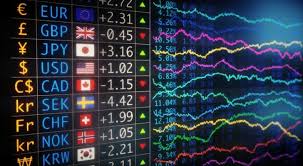
A forex trading license is essential for anyone serious about the financial markets. It not only legitimizes your business but also enhances your credibility among clients and investors. Whether you are a retail trader or managing a brokerage, understanding the nuances of forex licensing is crucial to your success in the market. For further insights, you can visit forex trading license trading-cambodia.com.
The Forex Trading Landscape
The foreign exchange market, known as Forex, is one of the largest financial markets in the world, with a daily trading volume exceeding $6 trillion. While this presents a wealth of opportunities for traders and brokers alike, it also comes with its set of regulatory challenges. The global nature of forex trading means that regulations vary dramatically from one jurisdiction to another…
Understanding Forex Trading Licensing
A Forex trading license is a permit that allows individuals or firms to legally operate as brokers or dealers in the forex market. Each country has its regulatory authority that governs the issuance of these licenses. For instance, in the United States, brokers must be registered with the Commodity Futures Trading Commission (CFTC) and must also be members of the National Futures Association (NFA).
Why You Need a Forex Trading License
Having a forex trading license is crucial for several reasons:

- Legitimacy: Without a license, your trading operations may be considered illegal, leading to fines or more severe penalties.
- Trust: Clients are more likely to engage with brokers that are regulated. A license reassures them of the safety of their funds.
- Security: Regulatory bodies require brokerages to adhere to stringent guidelines meant to protect clients’ interests, including segregating client funds.
- Access to Various Markets: A license may allow you to offer trading on a wider range of assets, attracting more clients.
Types of Forex Licenses
There are various types of forex licenses depending on the operations you plan to conduct:
- Broker License: This license allows you to act as an intermediary between buyers and sellers in the forex market.
- Dealer License: A dealer license permits a company to buy and sell currencies on behalf of clients, essentially assuming the role of risk-taker.
- Registered Investment Advisor (RIA): This designation allows for a broader range of financial advisory services beyond just trading.
How to Obtain a Forex Trading License
The process of obtaining a forex trading license can be complex and varies from jurisdiction to jurisdiction. Here’s a general overview:
- Select a Jurisdiction: The first step is to choose a jurisdiction that suits your business model. Consider factors such as regulatory requirements, taxation, and operating costs.
- Prepare Necessary Documents: Typically, you will need to submit documentation related to your business structure, financial statements, business plan, and proof of your qualifications.
- Submit Application: Once all documentation is ready, submit your application to the relevant authority along with the required fees.
- Compliance Check: Regulatory agencies will conduct a thorough review of your application, which may include background checks on owners and key personnel.
- Receive License: Upon approval, you will receive your trading license, allowing you to start your forex brokerage operations legally.

Common Challenges in Obtaining a Forex License
While obtaining a forex trading license is essential, the process is not without its challenges:
- Time-consuming: The application process can take several months, depending on the jurisdiction.
- Financial Requirements: Many jurisdictions require a high minimum capital requirement, which can be a barrier for new entrants.
- Ongoing Compliance: Once you have a license, you must maintain compliance with regulations, which may involve regular audits and reporting.
Post-Licensing Considerations
After acquiring your forex trading license, it’s essential to focus on several important aspects to ensure continued compliance and operational efficiency:
- Develop Internal Policies: Establish internal compliance policies to ensure all practices align with regulatory requirements.
- Client Fund Management: Implement robust systems for managing client funds, ensuring they are stored separately from company assets.
- Continual Training: Ensure your staff is well-versed in compliance obligations and market changes through regular training sessions.
Conclusion
The forex trading landscape is continually evolving, and obtaining a forex trading license is a critical step for any trading entity. It not only legitimizes your operations but also enhances clients’ trust and ensures compliance with legal standards. In a highly competitive environment, a proper license may be the distinguishing factor that sets your trading business apart in the global market.
